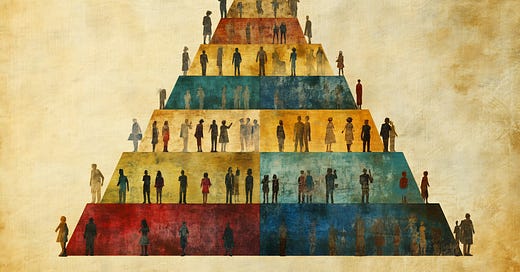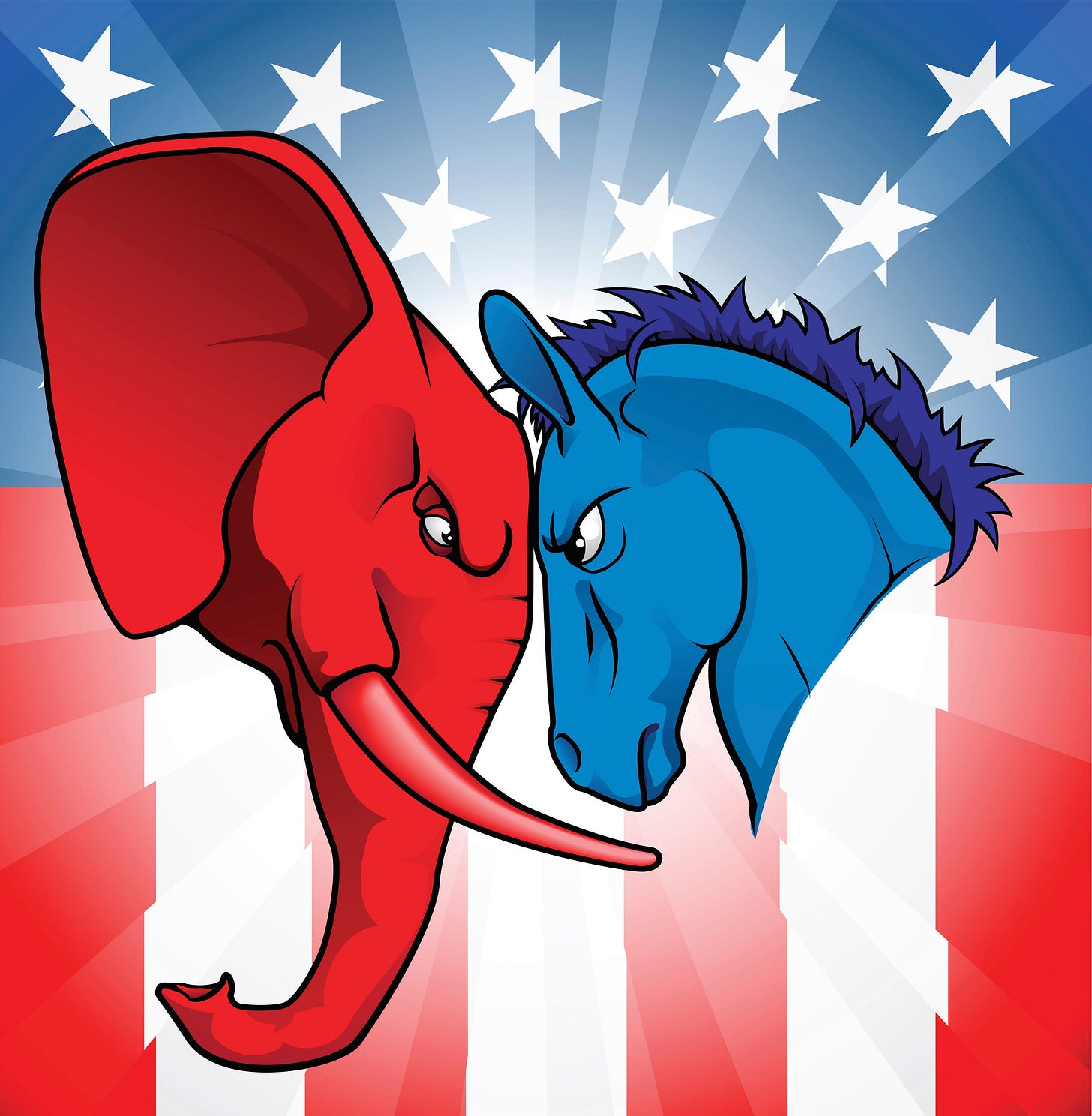I decided to transfer from studying ministry to majoring in social justice partly because I felt uncomfortable aligning with a specific denomination of my religion. I was uncertain about where my studies would lead professionally. I only knew that I wanted to take an active role in creating a more equitable society. Delving into identity as it relates to societal privilege is central to social justice studies.
Discussions about identity and politics have dominated the last decade, often framed as debates over the politicization of identity. However, there is another, frequently overlooked dimension: how politics itself becomes part of our personal identities. This influences how we interpret issues, politicians, news, and government.
The word "identity" has become a contentious term in politics, primarily because it has been reduced to simplistic labels by politicians and the media. A foundational element of social justice studies involves examining the contrast between inherent privilege and systemic marginalization. This is often depicted as a pyramid, with those who hold the most privilege at the top and those who contend with the highest levels of inequity at the bottom. On the surface, it appears straightforward—white men at the top. But who occupies the bottom? And do all white men experience the same privilege? The pyramid is flawed because identity is multi-dimensional.
Socioeconomic identity analyses traditionally categorize people by race, ethnicity, religion, gender, and sexuality. These classifications provoke ire from the right and activism from the left. As we engage deeply with these issues, their complexity becomes apparent. We all occupy multiple positions on the pyramid. For instance, a white Jewish man holds less privilege than a white Christian man, while a brown heterosexual Muslim woman may rank below a Black Christian lesbian. Furthermore, sociologists often disagree on the exact positioning of individuals within the pyramid. Nonetheless, the fundamental concept remains: the more marginalized identities one holds, the more susceptible one is to inequity. This concept of "layered vulnerabilities" explains why policies like Affirmative Action and initiatives promoting diversity, equity, and inclusion (DEI) exist. The aim is to flatten the pyramid, ensuring equal rights and opportunities for all.
Why, then, do these policies provoke such anger?
Identity is deeply personal. People are inherently tribal, seeking community and often defining themselves through it. How governments, institutions, and scholars categorize identity can feel reductive and dismissive. Women are not a monolith. Black people do not all share the same values. Jewish people don’t all interpret their faith in the same way, just as Christians have diverse understandings of their moral imperatives. The pyramid is intended to be a tool—a way to recognize and address systemic inequality—not a weapon or a definitive measure of worth.
Identity politics, as we commonly understand them, are often little more than politicians exploiting our egos and insecurities. The pyramid's purpose is recognition, but how we translate this recognition into policy determines tangible outcomes. It’s far easier to keep people divided by emphasizing their differences than to engage in the nuanced, difficult work of addressing inequity through careful policymaking. I call this lazy politicking.
Where do we find the elephant in the room?
Politics itself can be integral to a person’s identity.
While most of us regard political affiliation as a choice, it can play a similar role to religion in shaping personal identity. This is where ideology and identity become blurred.
I know lifelong Republicans and Democrats who have never considered voting outside their party. They enter the voting booth and instinctively support their party, regardless of the candidate’s merits. Others prefer ideological labels—conservative, moderate, liberal, progressive—over party affiliation. Make no mistake, these distinctions matter to them, and they embrace these labels as essential parts of their identity.
This is the elephant in the room (or the donkey at the door, if you prefer). It becomes increasingly challenging to appeal to people’s common sense, intellect, and critical thinking when they view their political ideology as integral to their identity.
I have Republican friends who’ve told me they held their noses to vote for Donald Trump because they could never bring themselves to vote for a Democrat. "Democrats are terrible people," they say. When I point out that I’m a lifelong Democrat and that we often agree more than they expect, they dismiss it—I’m not like most Democrats. But who exactly are "most Democrats"? Conversely, when I criticize the Democratic Party, fellow Democrats often scoff or belittle me, suggesting I’m not truly one of them. Devotion is the price of admission to a political tribe.
But what happens when devotion becomes blind adherence?
This form of political identity is equally problematic as the identity politics weaponized during campaigns. It erases nuance and undermines our capacity for independent thought. It effectively marginalizes us, transferring power to the entities that preach to us instead of empowering us as individuals.
Human nature drives us to find and create tribes of like-minded individuals. We inherently want to belong. Within the groups we form, we also establish hierarchies. All nations are made up of people—individuals with shared beliefs and goals. Over time, our nationality becomes a part of our human identity. Within the boundaries of our country, we further divide into groups whose interests closely align with ours, claiming those groups as part of our identity. Within those communities, we encounter individuals whose beliefs seem to complement ours, leading to further divisions. Consider starting as an American, then becoming a Democrat, and subsequently aligning with a caucus. These alignments become problematic when we forget that we belong to the whole first.
There’s no perfect remedy for our propensity to divide ourselves. But we must be mindful of the ways we can become architects of our own disenfranchisement.
Diversity, equity, and inclusion are not our enemies. On the contrary, the variety of our lived experiences and how our identities shape our perspectives provide blueprints for innovative ideas and meaningful reform. To achieve lasting prosperity and equality, we must address the elephant in the room—our role in a house divided against itself.
What do we seek as Americans? I believe that when we strip away the bitterness that has seeped into our political and social divides, most of us want the same things. We want the opportunity to succeed, to be healthy and safe, to build loving relationships and families. We want to express our truths and live authentically, free from fear. We want our children to have greater opportunities and a brighter future.
We must demand that our politics reflect the diversity of our experiences rather than exploit them. We need to understand the difference between identities imposed on us and those we consciously choose.
People often wonder how others become devoted to cults. I find it curious that this seems so strange. Once something becomes part of our identity, it’s hard to let go. We aren’t part of it—it becomes part of us. This is the root of political entrenchment.
We need to return to a fundamental truth: we, the people, are America. We define what this country is and what it can become. We hold the power—not our political parties. They exist because we empower them, not the other way around.
Identity is a human reality. Organizations, teams, and governments all claim an identity. But if we hope to build a future where politics serves the people, we must remember: America’s identity is not defined for us—it is defined by us.






